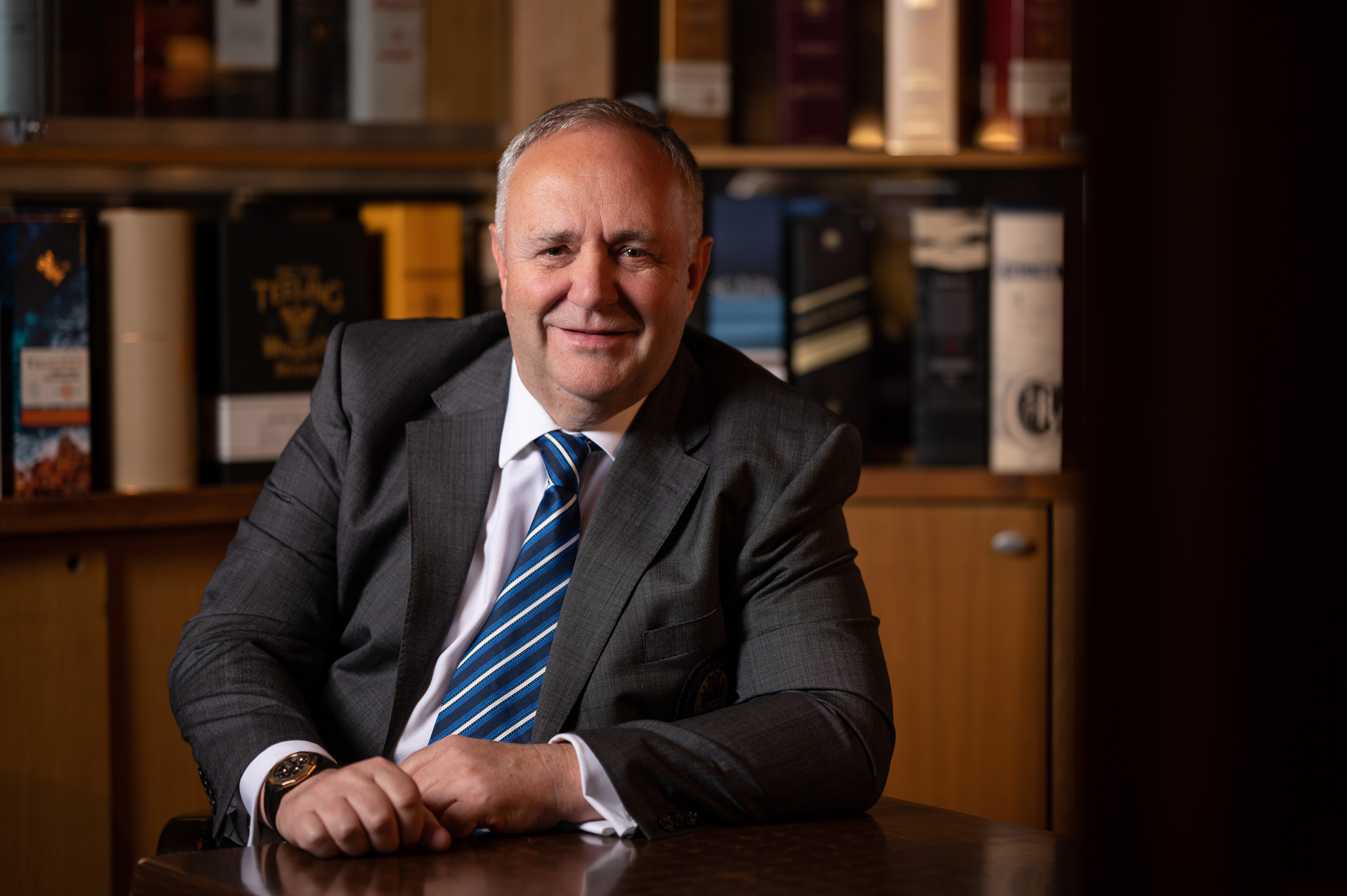Diplomatically Speaking: British Ambassador Paul Fox - Building Bilateral Success Post-Brexit

British Ambassador Paul Fox
Britain’s first post-Brexit ambassador to Budapest, Paul Fox, insists the United Kingdom’s new status outside the EU will not harm bilateral relations with Hungary. If anything, he says he expects trade to grow.
“We Brits have always prided ourselves on being a free trading nation; we see that as a path to prosperity,” he tells the Budapest Business Journal in an exclusive interview.
“I do not think our departure from the institutions of the European Union, from the Single Market, the Customs’ Union, should stop the development of a stronger trading relationship between our two countries, because there are plenty of opportunities on both sides.”
Fox took up his position as ambassador in September 2020. He says there are three pillars to developing the new relationship, building of long years of cooperation: Commerce and trade; defense and security; and people-to-people connections.
There are many areas of obvious connection between the two countries. Both remain members of NATO, for example, and, although the precise nature of the relationship has changed, Europol is another point of contact.
“There is also the broader national security, what you can call Pol-Mil, type of cooperation. In the short time I have been here, our relationship with the defense ministry has developed substantially,” Fox says.
Balkans Cooperation
“One area where we are keen to work together is the Western Balkans. Hungary has a lot of knowledge and direct experience of the Western Balkan. We have as well, but from a different perspective, and we both share the same aim, which is maintaining stability in that region, because it still remains fragile.”
That is more than just a strategic geo-political point of view, however. Fox jokes that his diplomatic career can be summarized as “conflict and commerce”, with Iraq and Afghanistan featuring prominently in the former column. But the ambassador’s earliest appointments were as a research assistant (1987-88) and then desk officer (1988-90) for Yugoslavia.
“I have spent a fair amount of my career working on the Western Balkans, so it is something in which I am personally interested.”
Hungary has always argued the former Yugoslav states should be allowed to join the EU as soon as possible. What is the British position, does it think these countries should join a bloc it has just left?
“It is not for us to say who should and who should not join the EU, but what I can say, based on my own previous experience, is that the prospect of joining the European Union has helped those countries in the Western Balkans move away from conflict,” Fox explains.
“If it is about underpinning stability, underpinning peace and encouraging prosperity, that type of European perspective cannot do any harm.”
Climate Agenda
The commercial and trade pillar on which the ambassador plans to build his approach is most obviously represented by high profile British companies already present in Hungary such as Tesco, Vodafone, BP, and Shell.
A perhaps less obvious area of cooperation, but one that will certainly become ever more important, is the climate agenda. Environmental issues have long been an area of particular interest for Hungary’s President János Áder, but the ambassador says it goes further than that.
“A broad range of people in the Hungarian government see this as an area where they can make an impact. They can lead the V4 region. They are going to hold the presidency from July; they see this as an opportunity to raise Hungary’s profile and they have done a lot of good work.”
The United Kingdom will host COP26, the 26th UN Climate Change Conference, in Glasgow from November 1-12 this year, and has recently set highly ambitious targets of reducing its carbon footprint by 68% from 1990 figures by 2030, but the embassy has been pursuing green issues in Hungary for several years.
“We have been talking to them [the Hungarian government] about where we can work together. One area has been smart cities; we see smart cities as a way to advance the climate agenda. Just before Christmas, I signed an MoU [memorandum of understanding] between Paks, the town where the nuclear power plant is, and Milton Keynes on collaborating on smart city initiatives,” Fox says.
“I do see that as being a real area of development, whether it be things like smart cities or renewables, and also pushing towards a carbon-free future. [.…] I do see this as a key area which will underpin or develop the bilateral relationship between the U.K. and Hungary.”
The ambassador insists the relationship will be robust. If there is a need to raise an issue, it will be done, but not in public.
“It is not for us to lecture Hungary. We are ‘sovereign equals’, to use a phrase that is fashionable at the moment. [….] My job as a diplomat is very straight forward: it is to promote, project and protect British value and interests. I don’t think megaphone diplomacy works. If there were to be disagreements, you talk to each other openly, honestly and, more often than not, privately,” he says.
The ambassador’s third pillar is people. There are 112,000 Hungarians registered in the United Kingdom, although guestimates for the real total vary from 200,000-300,000. No one knows for sure how many British citizens live in Hungary, but there are an estimated 5,000 registered.
Those who were here officially prior to December 31, 2020 now have until the end of this year to register for new, permanent status under a law the Hungarian parliament passed in December. The new arrangements will also cover areas such as healthcare and driving licenses.
“I think the key message is that there is now a process, it is straightforward, I would urge them [British citizens] to engage with it and regularize their situation here.”
British citizens looking to register in Hungary can find more information at the embassy’s Living in Hungary page (www.gov.uk/guidance/living-in-hungary) or the Permanent Residence Card page of the Hungarian National Directorate-General for Aliens Policing website (bmbah.hu)
This article was first published in the Budapest Business Journal print issue of January 15, 2021.
SUPPORT THE BUDAPEST BUSINESS JOURNAL
Producing journalism that is worthy of the name is a costly business. For 27 years, the publishers, editors and reporters of the Budapest Business Journal have striven to bring you business news that works, information that you can trust, that is factual, accurate and presented without fear or favor.
Newspaper organizations across the globe have struggled to find a business model that allows them to continue to excel, without compromising their ability to perform. Most recently, some have experimented with the idea of involving their most important stakeholders, their readers.
We would like to offer that same opportunity to our readers. We would like to invite you to help us deliver the quality business journalism you require. Hit our Support the BBJ button and you can choose the how much and how often you send us your contributions.








